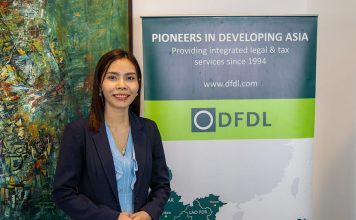
Islamic finance, which upholds Sharia principals and is in line with the ethical values of Islam, will make its debut soon in Cambodia.
According to the World Islamic Economic Forum (WIEF), two Malaysia-based Islamic financial institutions – Amanah Ikhtiar Malaysia and Yapeim – are expected to open their first branches by the end of the year and 2018 respectively.
“Promoting Islamic finance will build bridges in the microfinance world and also benefit Muslim people in Cambodia,” said Tan Sri Dr Wan Zahid Bin Noordin, chairman of the WIEF Education Trust, at a workshop on financial inclusion yesterday. “Sharia compliant Islamic banking encourages profit and loss sharing and assets-based investments, promoting financial inclusion for all.”
Osman Hassan, secretary of state at the Ministry of Labour and Vocational Training and president of Cambodian Muslim Development Foundation, said Muslims in the country were reluctant to try to access the kingdom’s financial services as paying interest is not allowed under Islamic law.
“It becomes a problem if Muslim businessmen want to expand their businesses and feel that they cannot borrow money from the banks or microfinance institutions,” said Hassan. “As a matter of faith, a Muslim cannot lend money to, or receive money from, someone and expect to benefit. Interest [known as riba] is not allowed. To make money from money is forbidden – wealth can only be generated through legitimate trade and investment in assets.”
Hassan said Prime Minister Hun Sen had given the green light for adding a “fee charge” instead of interest for Muslims accessing financial services.
“Samdech Techo [Hun Sen] asked the Ministry of Economy and Finance to deal with the issue and the ministry agreed that it could be corrected by changing the term ‘interest rate’ to ‘loan service fee’,” he said. “What sets Islamic loans apart is that there ideally shouldn’t be any extra or hidden costs. Both you and the bank or MFI are made aware of how much the bank is charging right from the beginning.”
According to Hassan, the service charge fee would be 1 to 1.3 percent per month.
Bun Mony, advisor to the Cambodian Microfinance Association, welcomed the move saying Islamic financial services are much needed for the country’s Muslims. “The main aim is to help Muslim people access financial services,” he said.
This article was originally published in the Khmer Times.
[democracy id=”3″]








